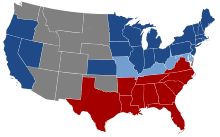
Lagos, Nov. 3, 2025 – The Centre for the Promotion of Private Enterprise (CPPE) has described the new 15% duty on refined petroleum products as a positive policy proposition.
The think tank made the observation at the weekend in a statement signed by Muda Yusuf, its Chief Executive.
It said the import duty could catalyse industrial expansion, conserve foreign exchange, create jobs, and promote economic resilience if complemented with broader industrial support measures.
The CPPE said the country’s overdependence on imports over the years had weakened its productive base, eroded competitiveness, and exposed the economy to external shocks.
It described industrialisation as a gradual process that begins with consolidating the domestic market, progresses through regional expansion, and culminates in global competitiveness.
“Strategic protectionism provides the enabling environment for this evolution by shielding emerging industries from premature exposure to unfair competition
“Strategic protectionism also encourages domestic investment, fosters local value addition, and allows firms to achieve efficiency and scale before competing globally.
“For Nigeria, this approach is not economic isolation or the creation of monopolies. Rather, it is a self-strengthening strategy to ensure the domestic economy develops sufficient capacity to compete effectively on the global stage
“This modest protection will provide the policy support needed for domestic refineries such as Dangote Refinery, NNPCL refineries, and emerging modular refineries to thrive, restore Nigeria’s refining capacity, and reduce foreign exchange exposure,” it said.
The CPPE said the sectors that had enjoyed measured protection over the years like the cement, flour, and beverages, had recorded remarkable domestic growth and value addition.
It said in flour milling, the combined import charges exceeded 70% which had fostering backward integration and domestic capacity expansion, while in agro-processing, the average import tariffs of over 30% had stimulated local production and employment.
The CPPE said Import restrictions on selected product groups in the pharmaceutical sector had promoted health sovereignty and encouraged local manufacturing.
“In this context, a 15% duty on refined petroleum products is modest, balanced, and necessary to restore Nigeria’s refining capacity and fiscal resilience,” it said.
CPPE said exposing local industries to global competition without addressing structural constraints is not desirable and legitimate competition, but a policy-induced disadvantage.
“Nigerian manufacturers face high energy costs, weak infrastructure, limited access to finance, inefficient ports, and complex regulatory frameworks.
“Producers in advanced economies, by contrast, enjoy subsidized energy, efficient logistics, and low-interest financing. Without correcting this imbalance, Nigerian firms cannot compete fairly. Genuine competition requires comparable production
“Nigeria’s journey to sustainable industrialization must be anchored on strategic, time-bound protectionism, not indiscriminate liberalization. No country has industrialized through unrestrained exposure to imports.
“The 15% tariff on refined petroleum products is a forward-looking policy that can transform Nigeria’s industrial landscape if reinforced with complementary reforms,” it said.




